11 Phrases Deeply Unhappy Kids Say On A Regular Basis, According To Experts
Children who struggle with their emotions tend to rely on certain words to try and express themselves.
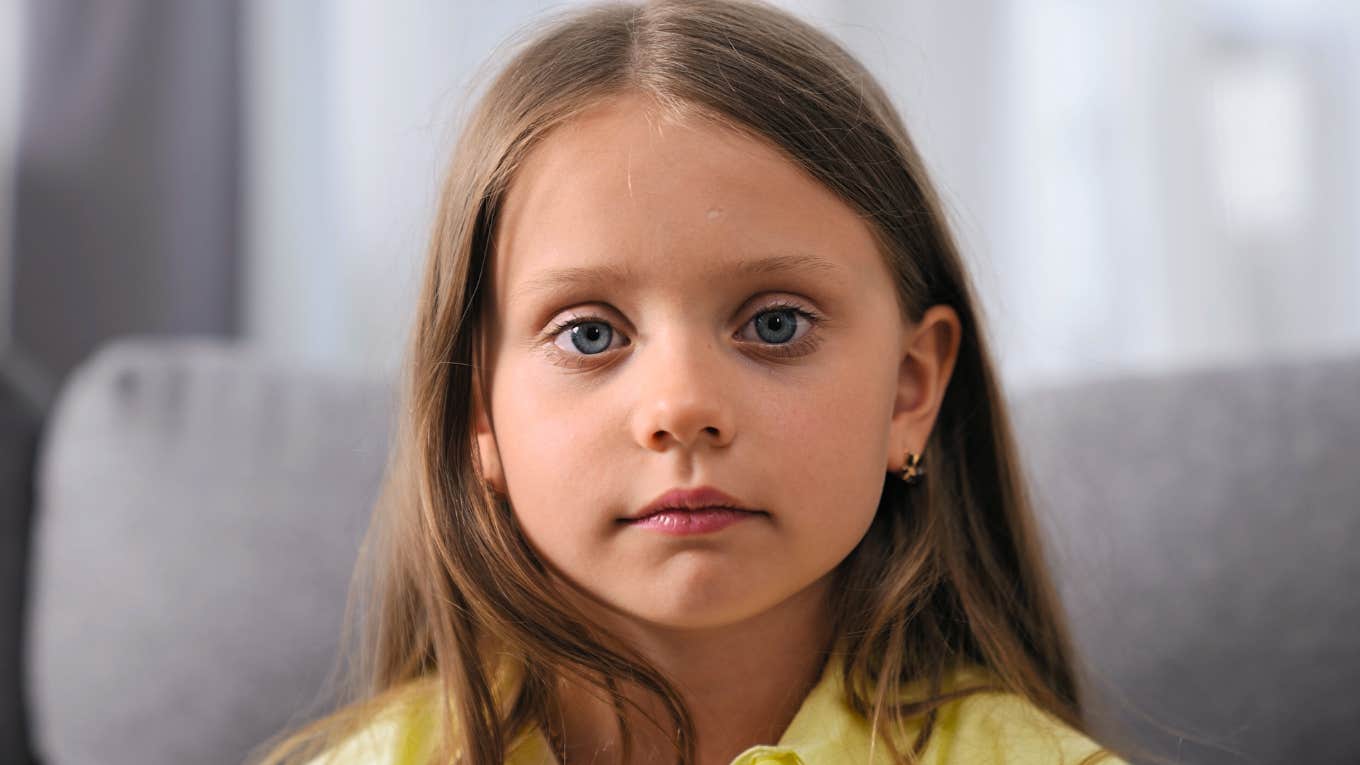 SibRapid | Shutterstock
SibRapid | Shutterstock The one thing that children take some time to learn is how best to express what they're feeling. They don't have the years of experience and tools under their belt that most adults do when it comes to expressing their emotions, so they tend to depend on various phrases that adults may just dismiss because they think the child is being dramatic. However, despite children oftentimes not being taken seriously, it's important to recognize the phrases deeply unhappy kids say on a regular basis.
According to the CDC, an estimated 1 in 5 children and adolescents have experienced some form of mental, emotional, or behavioral health issues at some point in their lives. It's something that affects them, but they aren't just going to outright say that they're struggling with feelings of hopelessness or self-doubt. It's up to the adults in their lives to pick up on these phrases and habits before it spirals out of control, and make sure those emotional struggles aren't being invalidated, especially when it's clear they're crying out for help.
Here are 11 phrases deeply unhappy kids say on a regular basis, according to experts
1. 'I don't care'
 Iren_Geo | Shutterstock
Iren_Geo | Shutterstock
For the most part, when a child is telling an adult or someone around them that they don't care, it can just feel as if they aren't trying, so an adult might just dismiss them without actually listening. But if you were to dive deep, you'd see that the child isn't just expressing indifference but actually trying to get across that they are feeling overwhelmed and mentally exhausted.
"When your child experiences big emotions, their body reacts the same way yours does — tense muscles, shorter breath, and increased heart rate. They won't come back to their emotional baseline until their physical responses also settle down. Checking your own heart rate can remind you that similar sensations are happening for your child," explained child psychiatrist Candida Fink.
Whether it's because of school, things happening in their personal lives with their friends, or the pressures of having to succeed, they will just lean on not caring as a way to protect themselves from disappointing others and being vulnerable. They're unsure how to cope so they instead want to just shut down altogether.
Children may not have the confidence or words to actually tell their parents or the adults in their lives that they just need someone to listen. So they default to an "I don't care" mentality as a way to push people away and keep them at a distance.
2. 'I'm afraid no one will ever get me'
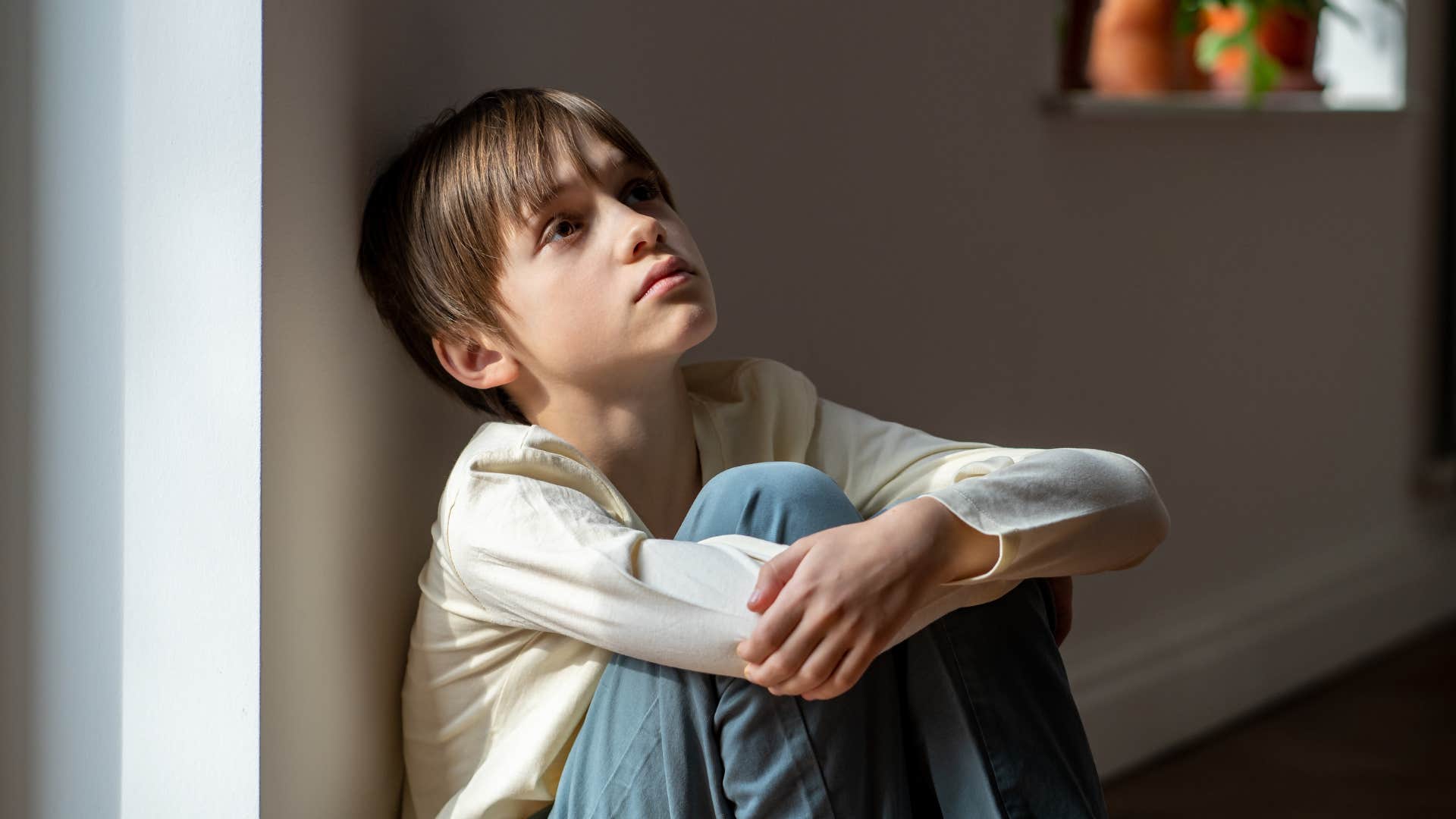 DimaBerlin | Shutterstock
DimaBerlin | Shutterstock
When a child has been constantly dismissed or invalidated by the people in their life, it can be hard for them to think that they'll ever be understood and cared for. They'll use one of the phrases deeply unhappy kids say on a regular basis to express this.
They aren't just being dramatic, but because of how unhappy they are, the fear that they'll never fit in can be quite debilitating. Even though adults know that there will be moments in life where you might feel like an outcast, you'll eventually find a group of people who will accept you, flaws and all.
But it can be hard for deeply unhappy children to see the light at the end of the tunnel when they're constantly being surrounded by situations that leave them feeling empty and dismissed all of the time. They just want someone to see them for who they are and to be accepted without judgement or this pressure to change.
It's why safe spaces are so important for kids. They need to be allowed to be imperfect without worry that they'll be abandoned or cast aside.
3. 'Nobody likes me'
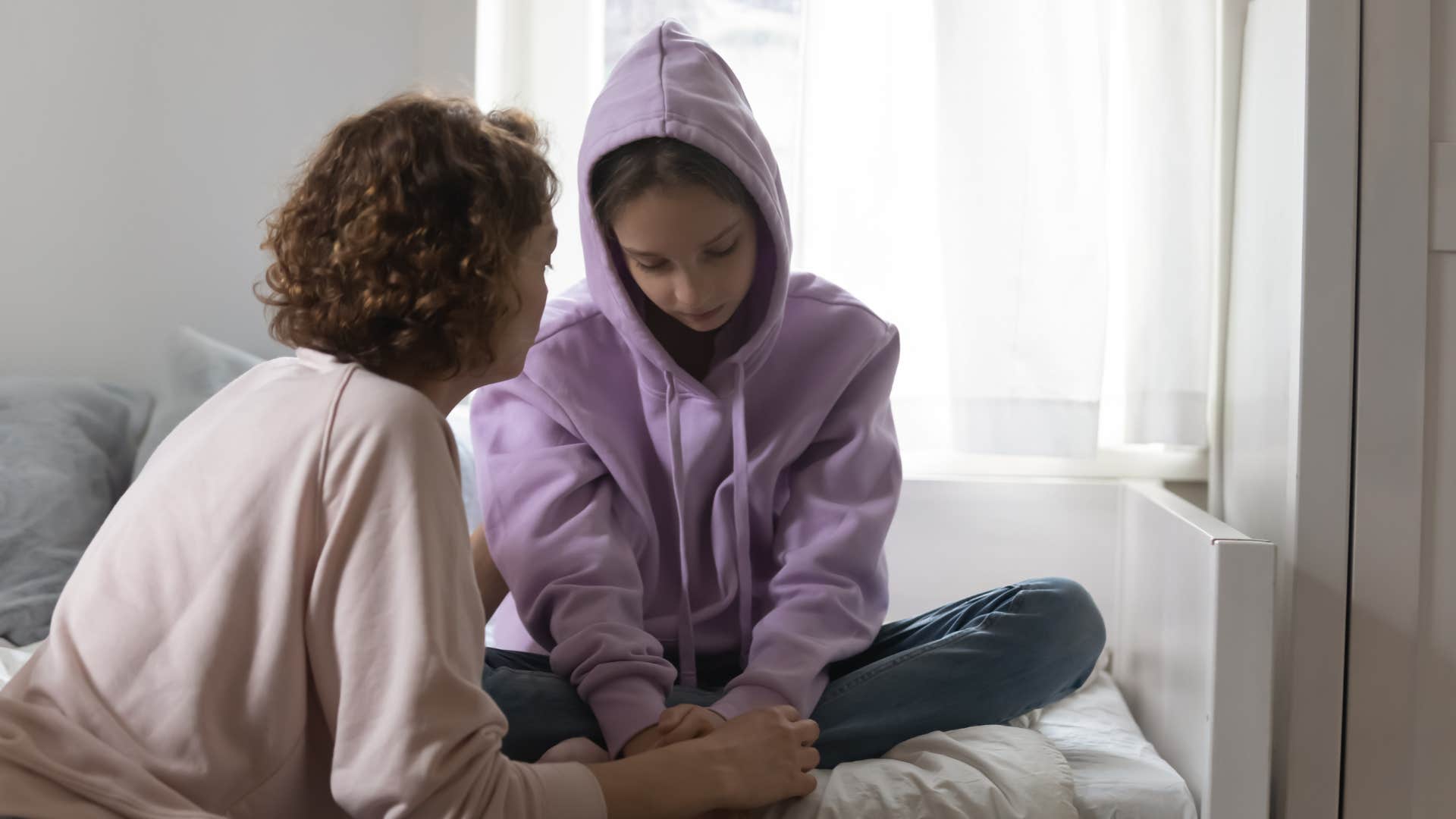 fizkes | Shutterstock
fizkes | Shutterstock
When a child is expressing the fact that no one likes them, it's easy for adults to not really pay attention because they think they're just being over-the-top and it can't be true. However, just like adults, kids can most definitely feel isolated and misunderstood by the people around them. From being in the classroom, hanging around other kids in their neighborhood, or even trying to fit in with their family.
"Social support and meaningful daily interactions are key to reducing loneliness. Most children and teens went from arranged play dates to current conditions without learning to arrange for in-person get togethers," said psychology professor Nancy Darling. "Parents can help children overcome their initial reluctance and learn the skills to build real friendships."
This phrase reflects a deeper sense of loneliness and this urge to want to connect with others but not really knowing how to go about it. They may struggle with making friends or bonding with other children, so when they're constantly facing rejection from their peers, it's easy for them to think there's something wrong with them.
They have a hard time believing that they're actually worthy of finding a deep friendship and connection, leading them to feeling as if they're some sort of anomaly.
4. 'I don't think I can handle this'
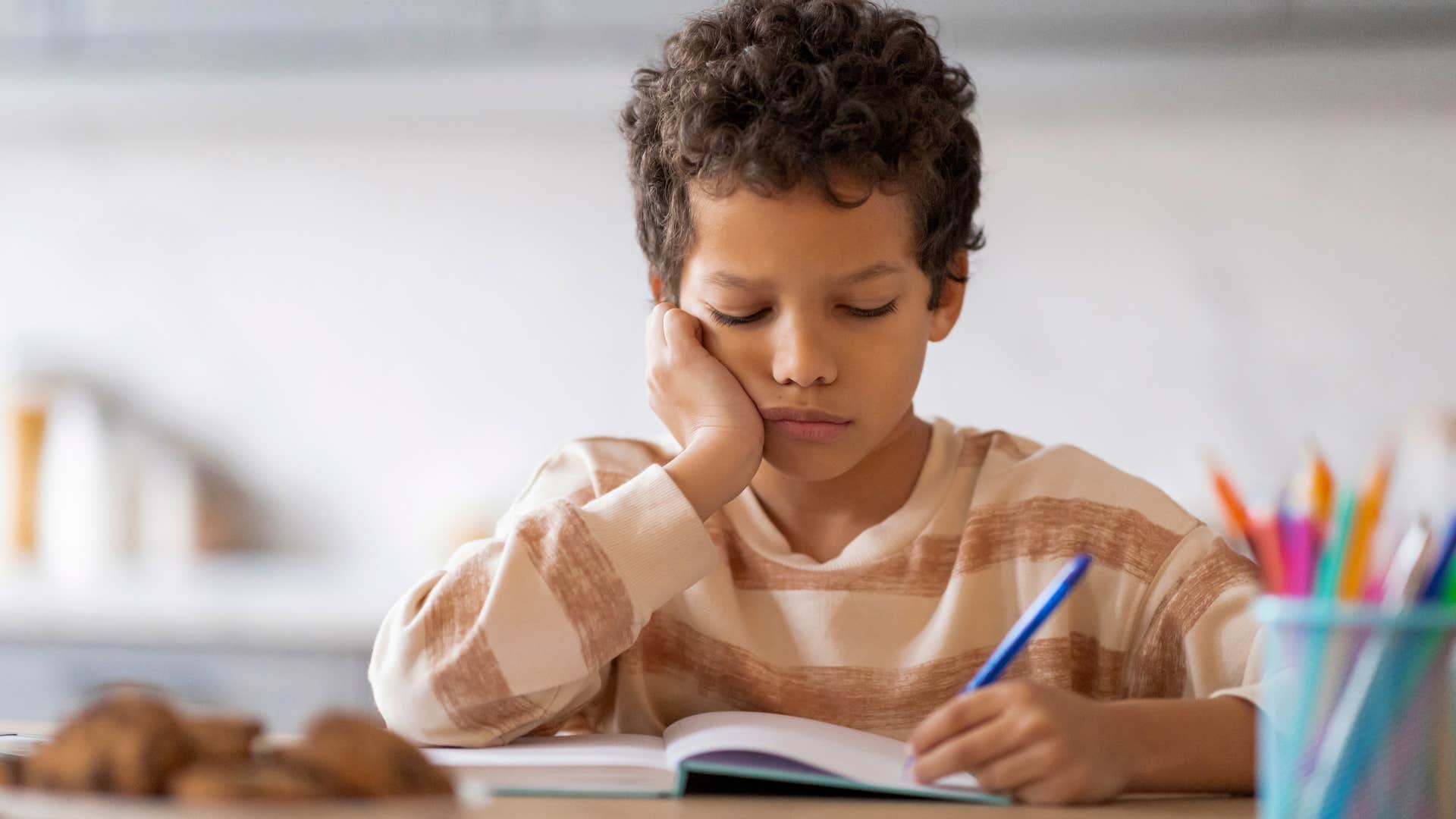 Prostock-studio | Shutterstock
Prostock-studio | Shutterstock
A child using this phrase is a sign that they're feeling extremely overwhelmed and don't have the necessary tools or language to be able to work through it. It could be something as small as trying to complete a task for school, or even something big like a family crisis or conflict happening in the home where they have to bear witness to it.
In that moment, it feels impossible for them to begin to try and navigate the large feelings they are experiencing, so they simply live in this mindset that they're not strong enough to handle it at all.
"When we avoid or minimize our children's feelings, we interfere in this process. We send the message that we are uncomfortable with their difficult emotions and don't want to hear about them. This makes it less likely children will share their feelings with us, depriving them of a chance to express and work them through," pointed out child developmental expert Claire Lerner.
It's important for the adults around them to reassure children who may be struggling with this mindset that they don't have to face any situation alone. There is always support around them and that consistent encouragement can be the biggest difference between them finally learning to let go of that fear or harboring it and having to carry it into adulthood.
5. 'I'm scared to ask for help'
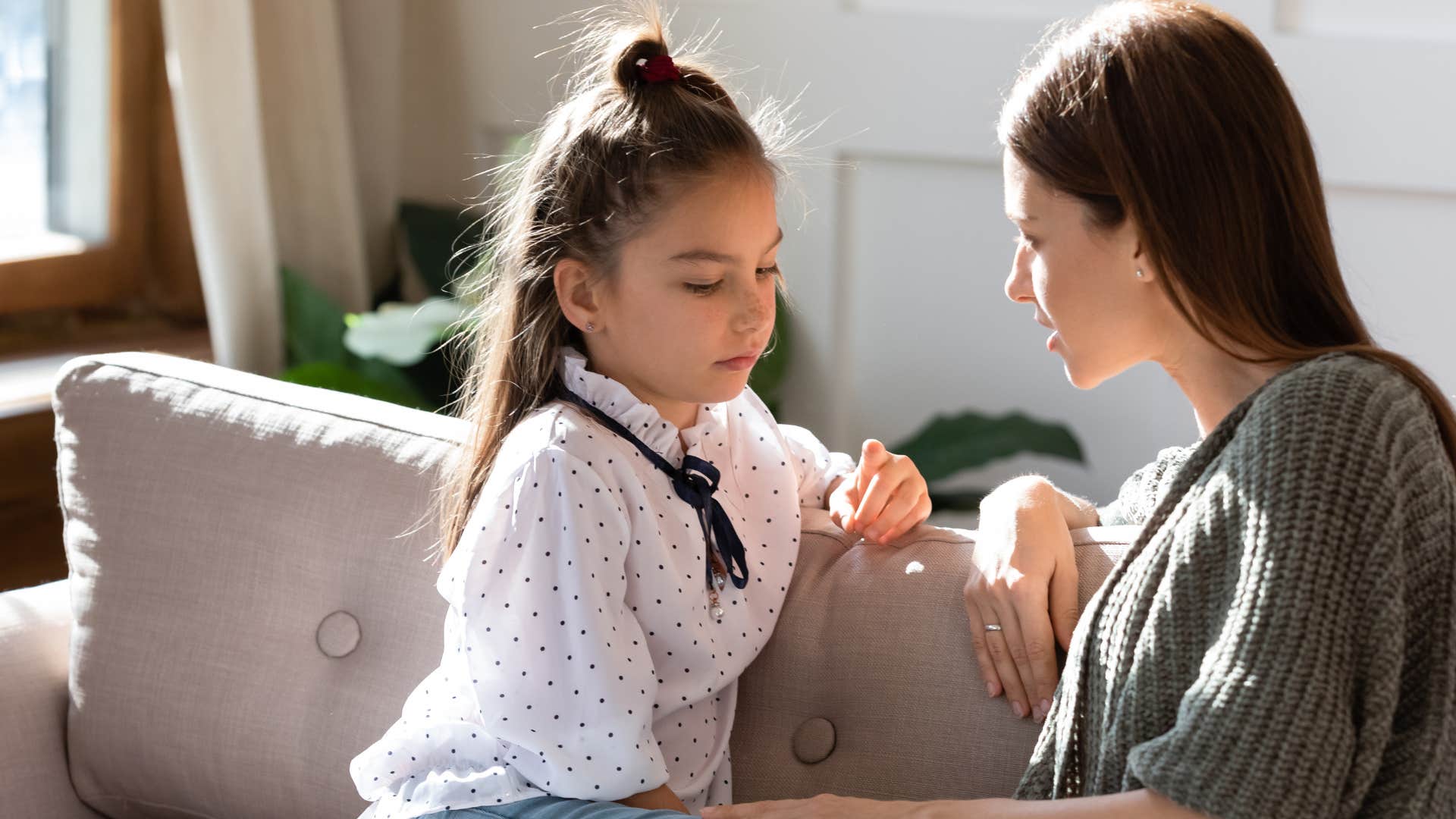 fizkes | Shutterstock
fizkes | Shutterstock
"I'm scared to ask for help" is one of the unfortunate phrases deeply unhappy kids say on a regular basis. And it's because a child who's carrying this weight of not wanting to be vulnerable or show their struggles is a child that can't ask for help.
For many kids, actually admitting they need help with something can feel like a sense of failure for them. In the same way that adults may struggle to lean on people for support, kids can very much be the same way. This may be the case because they've had to be the "strong one" and were probably criticized for not just "toughing it out."
"Knowing how and when to ask for help is a critical life skill that many children struggle to master. Their own feelings may get in the way of communicating what they need. They may also have beliefs that lead them to avoid asking for help, to ask too frequently, or to ask at inappropriate times," insisted clinical psychologist Eileen Kennedy-Moore.
From all of the negative experiences that they may have had, it's caused them to feel like they need to be stoic, even if they genuinely need someone to fall back on, which most kids do. Kids who already feel like a burden will try their hardest to act as if they're simply invisible. It means they're forced to struggle alone, and no child should ever feel like they need to close themselves off to their feelings to appease others.
6. 'It's my fault'
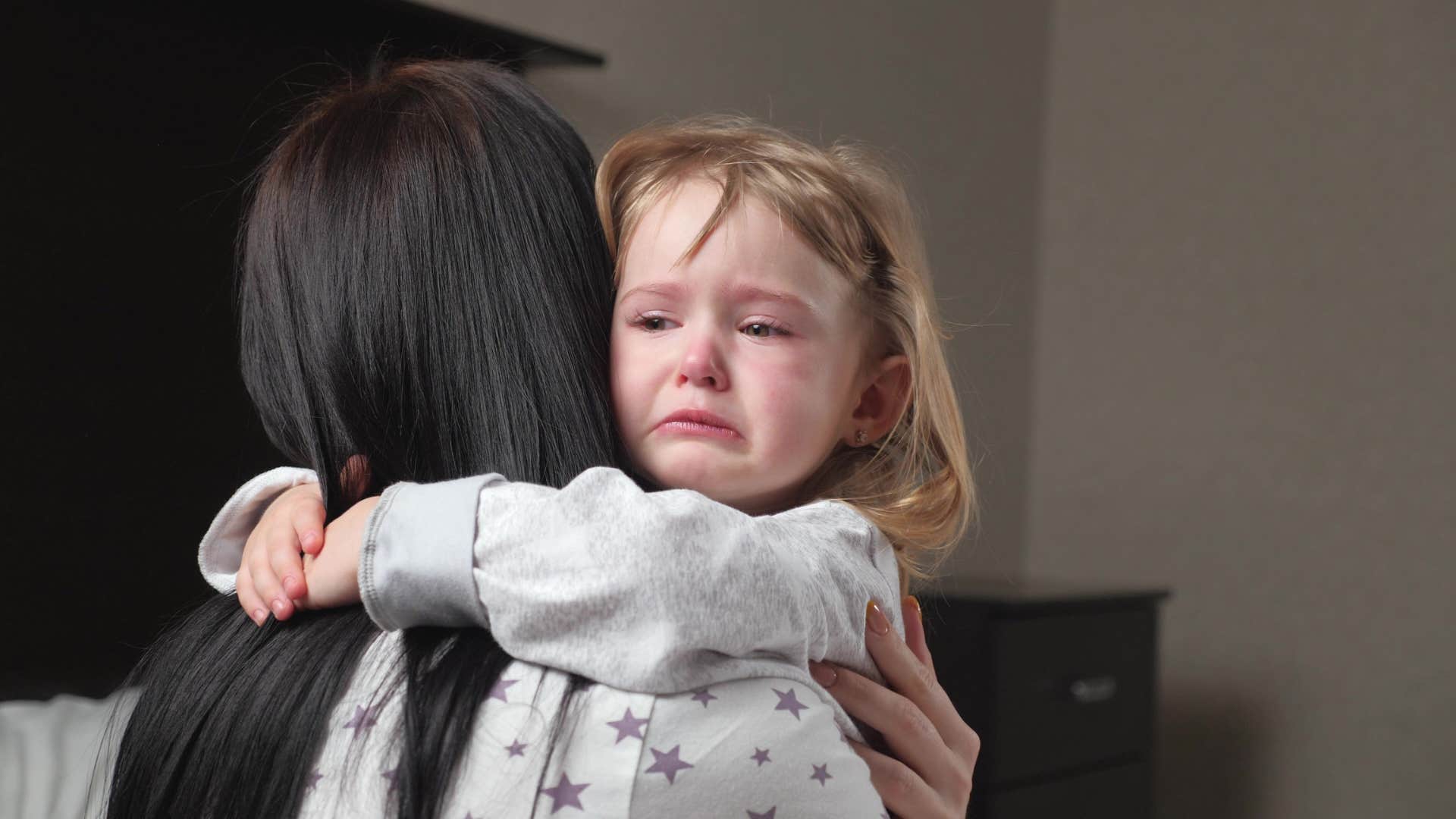 Zoteva | Shutterstock
Zoteva | Shutterstock
When a child is constantly blaming themselves for things going wrong, it isn't just them trying to take responsibility, but rather a default response to how they probably feel about themselves in this life.
They've learned to just carry the blame as a way of keeping the peace and wanting to avoid conflict, but to think this way from a young age means they're setting themselves up to always think things are their own fault as they grow up and learn more about their own identities.
"As children who self-blame grow into adults, they often continue using this coping strategy, even when it no longer protects them. These adults tend to take on too much responsibility and accept blame in their personal and work relationships, even when it's not their fault. This habit stems from deep-seated beliefs that they are too damaged, too emotional, or simply not good enough, which significantly lowers their self-esteem," pointed out psychotherapist Imi Lo.
Maybe they were constantly on the receiving end of getting blamed, whether that was due to the kind of household they grew up in or the environment they were around at school. So because of that, it isn't unreasonable that they start thinking when things go wrong, it's automatically their fault.
They start to think just their mere presence is the reason for trouble. This constant guilt can lead them to just being deeply unhappy and constantly striving for this idea of perfectionism that doesn't actually exist at all.
7. 'I wish I could start over'
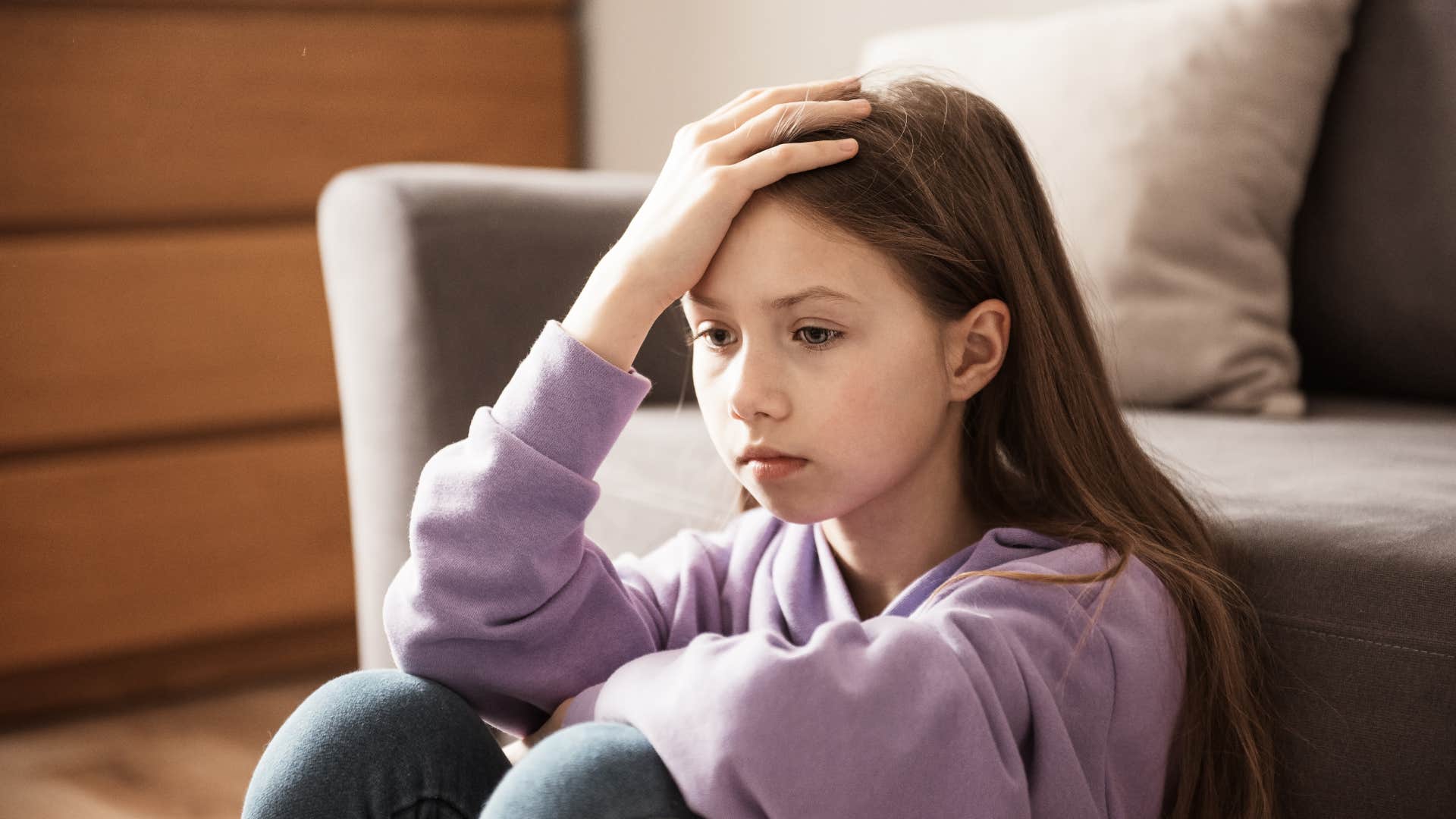 Iren_Geo | Shutterstock
Iren_Geo | Shutterstock
When a child expresses an urge to want to start over, it's never just about one isolated mistake they may have made, but because they just feel unhappy with an amalgamation of things that have piled up for them. They may feel stuck in a situation where things being fixed seems completely out of reach. It could be a falling out with friends, getting a bad grade in school, or even dealing with something happening at home.
Whatever the reason may be, it doesn't diminish their feelings or how unhappy they may be feeling. They think that getting a clean slate will make them feel better, and while it might be true temporarily, running away from their complicated feelings means they'll show up regardless.
When a child voices this feeling, the best possible response that their parents or caregivers can have is to help them see that while change is great, reinvention doesn't mean things will suddenly be better.
8. 'I don't want to talk'
 pikselstock | Shutterstock
pikselstock | Shutterstock
When a child is vehemently against talking or opening up, it can feel like they're just being stubborn, but often it's just their way of trying to protect themselves. Deeply unhappy kids usually shut down when they feel unsafe and overwhelmed. They think that speaking up would just be more risky, especially if they've been subjected to past encounters where upon trying to open up, they were just dismissed or even criticized.
Now, silence has become their way of trying to stay in control over what they choose to share. Kids who are struggling also just have a hard time putting into words how they feel. By refusing to talk at all, it's them being able to temporarily bury their feelings.
But as adults now, burying your feelings doesn't make them go away at all. Instead, they'll fester and grow until eventually they explode at the worst time. All a child needs is for someone to sit down and listen to them. They might not have the most articulate way of describing how they feel, but that doesn't make it any less genuine.
9. 'I feel so lost'
 Olga Viva | Shutterstock
Olga Viva | Shutterstock
When a child is expressing the fact that they feel lost in any way, it's usually because they feel this deep sense of confusion and even disconnect from themselves or how they're supposed to show up in the world. They may feel as if they don't really have a purpose, which is a big feeling for a child to have.
But considering children are only just trying to figure themselves out and will often make mistakes, it's a reminder that despite their age, they are also struggling to find a semblance of stability.
This can be especially true for kids who may have gone through a plethora of life changes, whether it's moving or having to change schools and be the "new kid" who doesn't know anyone. While these changes can feel minuscule to an adult, for a child, it's a disruption in their routine and therefore that uncertainty can feel overwhelming at times.
10. 'It's all pointless'
 fizkes | Shutterstock
fizkes | Shutterstock
"It's all pointless" is one of the phrases deeply unhappy kids say on a regular basis, because when a child feels such a deep sense of hopelessness, it can be hard for the adults in their lives to be there and comfort them, mostly because they may not understand where that feeling comes from.
For children that are struggling with their happiness, it's less about a singular moment or situation that has left them feeling as if life is pointless, but rather just the mindset that they're in. It could be because they've repeatedly faced disappointment and now don't see a way out of it and now they've just stopped trying altogether.
It's not due to the fact that they're lazy, but rather they've convinced themselves that no amount of energy put into life will be worth it. Adults need to meet kids with this idea from a place of empathy rather than trying to convince them that they're wrong.
11. 'I'm scared of what's next'
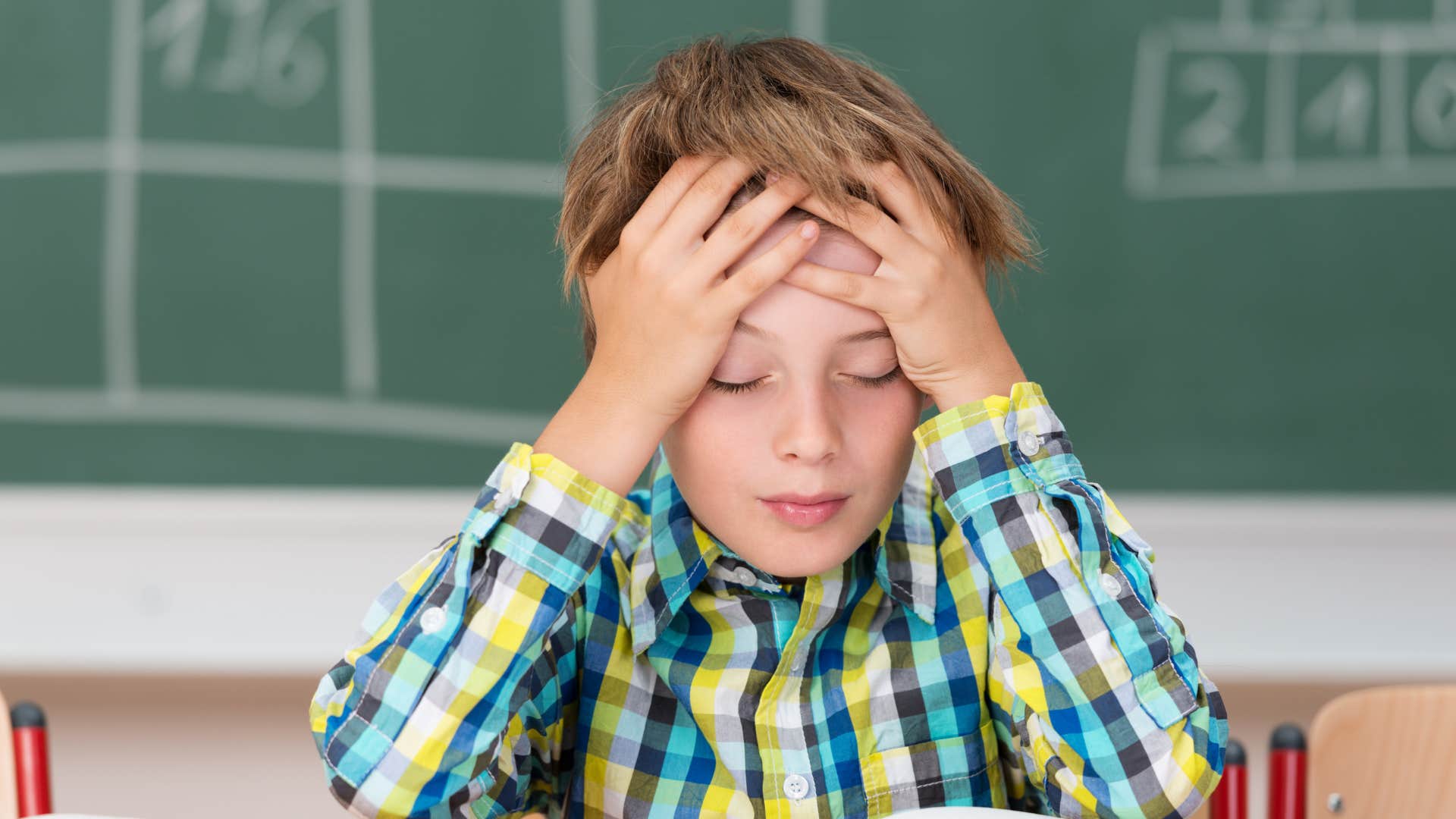 ESB Professional | Shutterstock
ESB Professional | Shutterstock
Children being afraid of the future is nothing uncommon. For adults, it stems from a fear of not being able to control what's going to happen, and the same can be said for kids as well. For a child that's deeply unhappy, the slightest of changes can feel threatening because they're already operating from a place of instability and fear. The unknown isn't just uncomfortable for them, it puts them on edge.
"Getting good at change is one of the most important life skills we can help our children learn. To some kids, it can come naturally, while others will need more time to process their fears or concerns. As a parent, you can be that safe space for them to land when their outer life is filled with new changes and you can show them that your love and presence never change," personal development expert Ariane de Bonvoisin encouraged.
They associate things not staying the same as a loss and, because of that, it's downright impossible for them to even broach the topic of the future and feel a bit of hope. They might not know exactly what event in the future they're scared of, but they just know that whatever it is, they might just be stuck in this unhappy mindset anyway.
It can keep them frozen and hesitant to take the steps they need to change. On top of that, they might not even know what those steps are to begin with.
Nia Tipton is a staff writer with a bachelor's degree in creative writing and journalism who covers news and lifestyle topics that focus on psychology, relationships, and the human experience.

